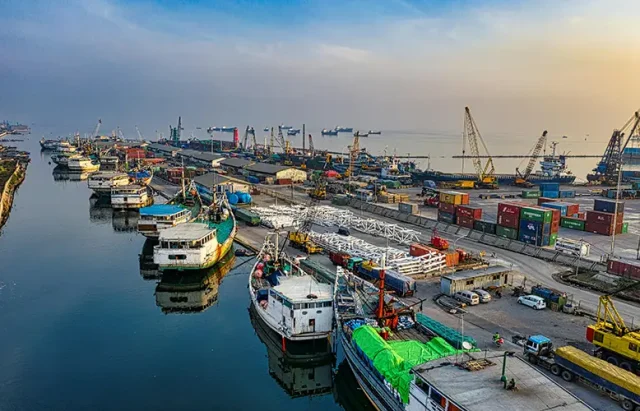
Boating is a popular activity in Boston, drawing locals and tourists alike to the city’s scenic waters.
However, accidents on the water are more common than many realize.
According to the U.S. Coast Guard, there were 3,844 recreational boating accidents in 2023 alone, leading to 564 deaths, 2,126 injuries, and around $63 million in property damage. Many of these accidents are caused by negligence, such as reckless driving or lack of proper safety measures.
This article will explore how a Boston boat accident lawyer can help you navigate the legal process and seek the compensation you deserve.
What are the Common Causes of Boating Accidents in Boston?
Boating accidents don’t just happen—they’re often caused by someone’s mistake or negligence. Figuring out what caused the accident helps show who’s at fault. Here are some common reasons why boating accidents happen:
- Operator Error
- Reckless Behavior
- Equipment Failure
- Bad Weather
- Collisions
Each of these causes can point to a responsible party, whether it’s the boat operator, owner, manufacturer, or another individual involved.
Understanding Massachusetts’ Boating Laws
Massachusetts has rules to keep boating safe, like licenses for young operators and required safety gear. Following these rules helps prevent accidents and protects everyone.
License
In Massachusetts, operators aged 12 to 15 are required to take a state-approved boating safety course to drive a motorboat on their own. Similarly, those aged 16 and older can only drive personal watercraft, like jet skis, if they’ve passed a state-approved boating course.
These rules ensure operators know how to stay safe and avoid accidents caused by inexperience.
Equipment
All motorboats (except personal watercraft) must have an anchor, a manual bailer, and a line on board. Boats under 16 feet long must also carry a paddle or an oar.
If a motorboat is towing skiers, it must be equipped with a boarding ladder to help people get back on the boat safely.
Insurance
Private boat owners in Massachusetts aren’t required to have insurance, but it’s a smart idea. Insurance can help cover repairs, medical bills, and other costs if there’s an accident.
For commercial boats, like charters or ferries, commercial boating insurance is required. This protects businesses and their passengers from damages or injuries that might happen during operations.
Who Is Responsible for a Boating Accident?
Determining responsibility in a boating accident depends on who was at fault. There are typically three parties that could be held liable:
Private Vessel Owners
When a privately owned and operated boat gets into a collision, it is almost always the fault of the boat’s owner. This could be due to operator error, poor maintenance, or failure to follow boating laws and safety rules.
Owners are responsible for ensuring their boat is in good condition, equipped with proper safety gear, and operated responsibly. If they allow someone unqualified, reckless, or intoxicated to drive their boat, they can still be held liable for any accidents that occur.
Commercial Operators
Commercial boating companies, such as charter boat services, ferry operators, or fishing tours, have a higher duty of care to ensure passenger safety. This includes properly training staff, maintaining the vessel, and following all state and federal regulations.
If a commercial operator’s negligence—such as overcrowding a boat, ignoring weather warnings, or skipping routine maintenance—leads to an accident, they may be held liable for injuries and damages.
Government Agencies
The Massachusetts Bay Transportation Authority (MBTA) runs ferries and other public boats and is responsible for keeping passengers safe. If an accident happens because a ferry wasn’t properly maintained, the crew wasn’t trained well, or hazards weren’t clearly marked, the MBTA could be held responsible.
However, claims against government agencies often involve additional legal hurdles, like filing a notice of claim within a specific time frame, so it’s important to consult a lawyer if this applies.
If you’re looking for a Boston boat accident lawyer, DiBella Law Office offers free consultations and works on a no-win, no-fee basis. This means you don’t pay unless they win your case. Their experienced team is dedicated to getting you the compensation you deserve.
How a Boston Boat Accident Lawyer Can Help You
A Boston boat accident lawyer knows the local laws and how to handle your case. Here’s how they can help:
Investigating the Accident
Lawyers gather evidence, interview witnesses, and work with experts to figure out exactly what happened and who’s at fault.
Handling Insurance Companies
Insurance companies often try to pay as little as possible. A lawyer knows how to negotiate with them and fight for the full compensation you deserve.
Calculating Your Damages
Your lawyer will consider all your losses, including medical bills, lost income, emotional distress, and future expenses, to make sure nothing is left out of your claim.
Representing You in Court
If your case can’t be settled, your lawyer will represent you in court and present a strong argument to get you the compensation you need.
Conclusion
Boating accidents can turn your life upside down, but you don’t have to face the aftermath alone. A Boston boat accident lawyer can help you understand your rights, guide you through the legal process, and fight for the compensation you deserve.
If you or someone you love has been hurt in a boating accident, don’t wait to get help. Reach out to a lawyer today to start building your case and take the first step toward recovery.





